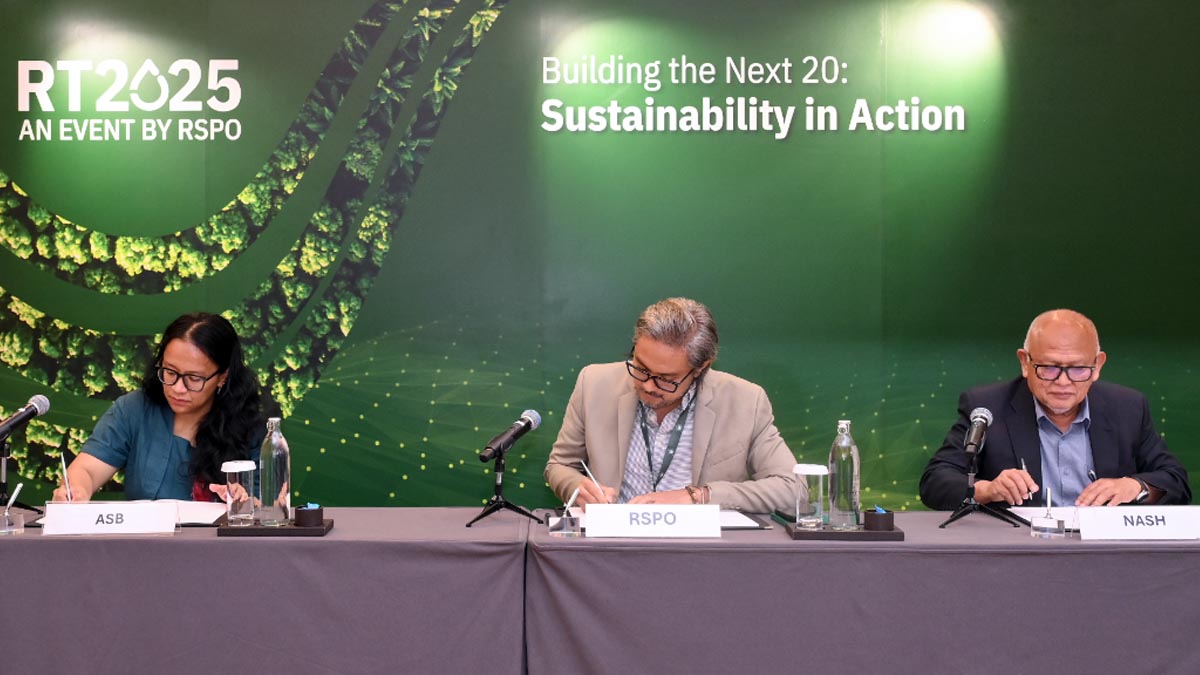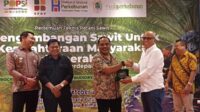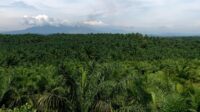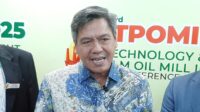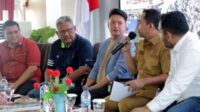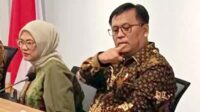PALMOILMAGAZINE, KUALA LUMPUR – The Roundtable on Sustainable Palm Oil (RSPO), the Asia School of Business (ASB) through its Center for Sustainable Small-Owners (CSS), and the National Association of Smallholders (NASH) have signed a Memorandum of Understanding (MoU) aimed at strengthening the resilience of Malaysia’s smallholders through training, digital transformation, and access to sustainable financing.
Malaysia’s smallholder sector faces a critical juncture. More than half of the country’s smallholder-owned oil palms are over 25 years old, and many farmers are nearing retirement age. Coupled with evolving global frameworks such as the EU Deforestation Regulation (EUDR), these conditions present both challenges and opportunities for productivity, income, and market access.
While Malaysia has made significant strides in sustainability certification, many smallholders still struggle to balance compliance with competitiveness. This partnership seeks to bridge that gap by creating practical pathways that help smallholders achieve both RSPO and MSPO certification readiness—two complementary standards that reinforce Malaysia’s global reputation as a producer of sustainable palm oil.
Also Read:
During the MoU signing, Adzmi bin Hassan, President of NASH, described the initiative as a reaffirmation of Malaysia’s rural empowerment ethos. “This collaboration is not about replacing one standard with another,” he said.
“It’s about equipping smallholders so that when they’re ready for RSPO, they’re also ready for MSPO. The goal is to build capability, confidence, and continuity,” he added, quoted from information obtained by beige-heron-208544.hostingersite.com.
Adzmi further emphasized that smallholders are central to Malaysia’s sustainable future. “This MoU proves that smallholders are not the problem—they are the solution. By aligning national and international standards, we’re turning compliance into opportunity, restoring pride to our smallholders, and securing Malaysia’s long-term sustainability.”
The initiative directly supports Malaysia’s national agenda to enhance smallholder competitiveness, strengthen supply-chain traceability, and promote sustainable growth in the palm oil sector.
Guntur Cahyo Prabowo, Head of RSPO’s Smallholder Unit, noted that sustainability should empower rather than burden smallholders. “Through partnerships like this, Malaysia is showing how inclusive policies can translate into real, on-the-ground impact,” he said. He praised the government’s commitment to putting smallholders at the heart of its sustainability framework—an approach that other palm oil-producing countries are observing closely.
To ensure long-term success, the collaboration will focus on improving productivity, data reliability, and value chain cooperation. Smallholders will be supported not only to meet certification requirements but also to thrive through better organization, digital traceability, and continuous learning opportunities.
The NASH–RSPO–ASB partnership brings together grassroots networks, academic research, and global sustainability expertise. The program will roll out in phases, delivering targeted training in good agricultural practices, record-keeping, and leadership development; strengthening data systems for traceability; and promoting sustainability-linked incentives that make responsible production both profitable and enduring.
Dr. Asad Ata, Faculty Director of ASB’s Center for Sustainable Small-Owners (CSS), underscored the school’s commitment to impactful research. “This is research in action,” he said. “By aligning data, training, and incentives, we’re helping smallholders turn certification into a pathway for resilience and growth. When sustainability is backed by credible research and fair opportunity, it becomes both practical and empowering.”
The three-year collaboration begins immediately, with initial socialization activities planned in partnership with local authorities and community leaders. As Malaysia charts a new chapter for its smallholder community, the NASH–RSPO–ASB alliance stands as proof that inclusive, evidence-based, and purpose-driven collaboration can unite development and sustainability in powerful ways. (P3)

